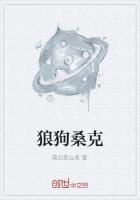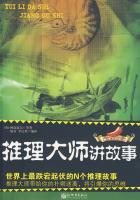The ancient classical schools of mythological interpretation, though unscientific and unsuccessful, are not without interest. We find philosophers and grammarians looking, just as we ourselves are looking, for some condition of the human intellect out of which the absurd element in myths might conceivably have sprung. Very naturally the philosophers supposed that the human beings in whose brain and speech myths had their origin must have been philosophers like themselves--intelligent, educated persons. But such persons, they argued, could never have meant to tell stories about the gods so full of nonsense and blasphemy.
Therefore the nonsense and blasphemy must originally have had some harmless, or even praiseworthy, sense. What could that sense have been? This question each ancient mythologist answered in accordance with his own taste and prejudices, and above all, and like all other and later speculators, in harmony with the general tendency of his own studies. If he lived when physical speculation was coming into fashion, as in the age of Empedocles, he thought that the Homeric poems must contain a veiled account of physical philosophy. This was the opinion of Theagenes of Rhegium, who wrote at a period when a crude physicism was disengaging itself from the earlier religious and mythical cosmogonic systems of Greece. Theagenes was shocked by the Homeric description of the battle in which the gods fought as allies of the Achaeans and Trojans. He therefore explained away the affair as a veiled account of the strife of the elements. Such "strife" was familiar to readers of the physical speculations of Empedocles and of Heraclitus, who blamed Homer for his prayer against Strife.
Is. et Osir., 48.
It did not occur to Theagenes to ask whether any evidence existed to show that the pre-Homeric Greeks were Empedoclean or Heraclitean philosophers. He readily proved to himself that Apollo, Helios, and Hephaestus were allegorical representations, like what such philosophers would feign,--of fire, that Hera was air, Poseidon water, Artemis the moon, and the rest he disposed of in the same fashion.
Scholia on Iliad, xx. 67. Dindorf (1877), vol. iv. p. 231.
"This manner of apologetics is as old as Theagenes of Rhegium.
Homer offers theological doctrine in the guise of physical allegory."Metrodorus, again, turned not only the gods, but the Homeric heroes into "elemental combinations and physical agencies"; for there is nothing new in the mythological philosophy recently popular, which saw the sun, and the cloud, and the wind in Achilles, Athene, and Hermes.
Grote, Hist, of Greece, ed. 1869, i. p. 404.
In the Bacchae (291-297), Euripides puts another of the mythological systems of his own time into the mouth of Cadmus, the Theban king, who advances a philological explanation of the story that Dionysus was sewn up in the thigh of Zeus. The most famous of the later theories was that of Euhemerus (316 B.C.). In a kind of philosophical romance, Euhemerus declared that he had sailed to some No-man's-land, Panchaea, where he found the verity about mythical times engraved on pillars of bronze. This truth he published in the Sacra Historia, where he rationalised the fables, averring that the gods had been men, and that the myths were exaggerated and distorted records of facts. (See Eusebius, Praep.
E., ii 55.) The Abbe Banier (La Mythologie expliquee par l'Histoire, Paris, 1738, vol. ii. p. 218) attempts the defence of Euhemerus, whom most of the ancients regarded as an atheist. There was an element of truth in his romantic hypothesis.
See Block, Euhemere et sa Doctrine, Mons, 1876.
Sometimes the old stories were said to conceal a moral, sometimes a physical, sometimes a mystical or Neo-platonic sort of meaning. As every apologist interpreted the legends in his own fashion, the interpretations usually disagreed and killed each other. Just as one modern mythologist sees the wind in Aeetes and the dawn in Medea, while another of the same school believes, on equally good evidence, that both Aeetes and Medea are the moon, so writers like Porphyry (270 A. D.) and Plutarch (60 A. D.) made the ancient deities types of their own favourite doctrines, whatever these might happen to be.
When Christianity became powerful, the Christian writers naturally attacked heathen religion where it was most vulnerable, on the side of the myths, and of the mysteries which were dramatic representations of the myths. "Pretty gods you worship," said the Fathers, in effect, "homicides, *****erers, bulls, bears, mice, ants, and what not." The heathen apologists for the old religion were thus driven in the early ages of Christianity to various methods of explaining away the myths of their discredited religion.
The early Christian writers very easily, and with considerable argumentative power, disposed of the apologies for the myths advanced by Porphyry and Plutarch. Thus Eusebius in the Praeparatio Evangelica first attacks the Egyptian interpretations of their own bestial or semi-bestial gods. He shows that the various interpretations destroy each other, and goes on to point out that Greek myth is in essence only a veneered and varnished version of the faith of Egypt. He ridicules, with a good deal of humour, the old theories which resolved so many mythical heroes into the sun; he shows that while one system is contented to regard Zeus as mere fire and air, another system recognises in him the higher reason, while Heracles, Dionysus, Apollo, and Asclepius, father and child, are all indifferently the sun.
Granting that the myth-makers were only constructing physical allegories, why did they wrap them up, asks Eusebius, in what WEconsider abominable fictions? In what state were the people who could not look at the pure processes of Nature without being reminded of the most hideous and unnatural offences? Once more:















